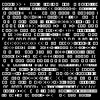 This is Jason Lescalleet's first full length release of studio produced material. I have known Jason's live tape-loopery for about four years and I deeply appreciate its visceral, human-organic quality and a gnarly expressiveness. With this background, 'Mattresslessness' came as a shock. The album opens with a sine tone composition in the Vainio/Ikeda style. I wonder why would this artist, whom I consider to have a truly rare and original talent, stoop to aping established artists? The next track seems to continue the pattern with a repetitive click pattern in the Nicolai style. The source of the third is harder to identify but it is also familiar: a noise collage, perhaps in the Lanz style? And so it goes on. I was, to say the least, bewildered and a somewhat concerned. However, after some head and chin scratching I put together a theory to answer this. With each piece being of a different character, the album covers a lot of space, touching on several well-established areas of endeavor in music, sound and noise. And these areas all have their well established masters. The European and Japanese masters, such as Lopez, Akita, Tietchens, Ikeda, Behrens, Nakajima et cetera, are able to turn out their quality set pieces with the apparent ease that Hayden did his symphonies, Mozart his concertos or Elton John his songs. All these masters were established as such through a combination of talent, PR, funding, and consistency; the aesthetic, political and financial aspects are all necessary; and it is fallacious to think that the former is sufficient. This CD sets out to challenge the essential authoritarianism inherent in this hierarchy. Jason, armed only with the aesthetic, moves into, by my count, nine different domains, turns the handle of the respective digital machine and shows us how the respective set pieces are constructed. He then proceeds to transcend each, exceeding the achievements of the masters, moving beyond the respective area's confines by adding acutely personal expression and original brilliance. The incendiary subtext is that the masters are false gods and the hierarchy itself is a false intellectual product of broken rationale. I'm not suggesting that Jason is challenging the validity or value of anyone's work; I don't think he is. I think he is taking aim at the authoritarian logic, so prevalent in Western culture, that bestows master status on a few and pretender status on the rest. Now then, with that theory of its intent in mind, how does the music sound? Actually it sounds wonderful. The sine tone piece descends into a gorgeous Eraserhead-sounding dreamscape, the metrical click patterns are transformed into scintillating diginoise only to emerge again fattened on a throbbing bed of bass, and the collage noise is run through the degenerative tape-loop process to make it good and sinister. My favorite piece, "Ineinandergreifen 08 Dezember 1912," has a melody that sounds like scraped or bowed metals on a 78 record that is then consumed by the tapes; degraded, subdued and eventually killed by an aging process to wrenching emotional effect. The whole album is immaculately turned out with excellent sound and tasteful packaging. Jason Lescalleet has exceeded himself. 'Mattresslessness' is a major achievement: brilliant music and a valid political message.
This is Jason Lescalleet's first full length release of studio produced material. I have known Jason's live tape-loopery for about four years and I deeply appreciate its visceral, human-organic quality and a gnarly expressiveness. With this background, 'Mattresslessness' came as a shock. The album opens with a sine tone composition in the Vainio/Ikeda style. I wonder why would this artist, whom I consider to have a truly rare and original talent, stoop to aping established artists? The next track seems to continue the pattern with a repetitive click pattern in the Nicolai style. The source of the third is harder to identify but it is also familiar: a noise collage, perhaps in the Lanz style? And so it goes on. I was, to say the least, bewildered and a somewhat concerned. However, after some head and chin scratching I put together a theory to answer this. With each piece being of a different character, the album covers a lot of space, touching on several well-established areas of endeavor in music, sound and noise. And these areas all have their well established masters. The European and Japanese masters, such as Lopez, Akita, Tietchens, Ikeda, Behrens, Nakajima et cetera, are able to turn out their quality set pieces with the apparent ease that Hayden did his symphonies, Mozart his concertos or Elton John his songs. All these masters were established as such through a combination of talent, PR, funding, and consistency; the aesthetic, political and financial aspects are all necessary; and it is fallacious to think that the former is sufficient. This CD sets out to challenge the essential authoritarianism inherent in this hierarchy. Jason, armed only with the aesthetic, moves into, by my count, nine different domains, turns the handle of the respective digital machine and shows us how the respective set pieces are constructed. He then proceeds to transcend each, exceeding the achievements of the masters, moving beyond the respective area's confines by adding acutely personal expression and original brilliance. The incendiary subtext is that the masters are false gods and the hierarchy itself is a false intellectual product of broken rationale. I'm not suggesting that Jason is challenging the validity or value of anyone's work; I don't think he is. I think he is taking aim at the authoritarian logic, so prevalent in Western culture, that bestows master status on a few and pretender status on the rest. Now then, with that theory of its intent in mind, how does the music sound? Actually it sounds wonderful. The sine tone piece descends into a gorgeous Eraserhead-sounding dreamscape, the metrical click patterns are transformed into scintillating diginoise only to emerge again fattened on a throbbing bed of bass, and the collage noise is run through the degenerative tape-loop process to make it good and sinister. My favorite piece, "Ineinandergreifen 08 Dezember 1912," has a melody that sounds like scraped or bowed metals on a 78 record that is then consumed by the tapes; degraded, subdued and eventually killed by an aging process to wrenching emotional effect. The whole album is immaculately turned out with excellent sound and tasteful packaging. Jason Lescalleet has exceeded himself. 'Mattresslessness' is a major achievement: brilliant music and a valid political message.
samples:



 This first full length release from Toronto-based multi-instrumentalist/producer Sandro Perri is a collection of two previously released 12" EPs (of very limited quantities) from his own Audi Sensa label with new interlacing compositions that sum up the title's concept. First off, an accompanying insert card in the Russian nesting doll-type of packaging provides textbook descriptions of four basic types breathing techniques (high, mid, low and complete) with there being a compositional collage to correspond and convey a sense of each one. The "breathing" tracks are generally comprised of subtle pulses, distant keyboard drones and washes of white noise with tremolo effects which could be heard as the equivalent of each individual style being translated by a high-end piece of music software. Previously released tracks such as "Acqua," "Rottura" and my personal fave "Riva" are somewhat more straight ahead in the style of a slightly funky deep house meets IDM, layered over what becomes the familiar elements throughout the course of listening. Perri handles the mixes of synths and samples with an exactness and still manages a nice, loose feel by adding some treated guitar and other stringed nuances to provide a more human quality. Spanning over forty-five minutes, the disc's eight tracks flow very agreeably, blending into each other so as not to leave you holding your breath.
This first full length release from Toronto-based multi-instrumentalist/producer Sandro Perri is a collection of two previously released 12" EPs (of very limited quantities) from his own Audi Sensa label with new interlacing compositions that sum up the title's concept. First off, an accompanying insert card in the Russian nesting doll-type of packaging provides textbook descriptions of four basic types breathing techniques (high, mid, low and complete) with there being a compositional collage to correspond and convey a sense of each one. The "breathing" tracks are generally comprised of subtle pulses, distant keyboard drones and washes of white noise with tremolo effects which could be heard as the equivalent of each individual style being translated by a high-end piece of music software. Previously released tracks such as "Acqua," "Rottura" and my personal fave "Riva" are somewhat more straight ahead in the style of a slightly funky deep house meets IDM, layered over what becomes the familiar elements throughout the course of listening. Perri handles the mixes of synths and samples with an exactness and still manages a nice, loose feel by adding some treated guitar and other stringed nuances to provide a more human quality. Spanning over forty-five minutes, the disc's eight tracks flow very agreeably, blending into each other so as not to leave you holding your breath.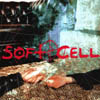 It's been a long time since 'This Last Night In Sodom' and to be honest, who would have thought they will ever come back with a new album. Rumors floated around for years, Marc Almond even mentioned it in his autobiography from 1999, and it's great that the finished product has finally materialized. Of course Soft Cell (like their audience) aren't screaming teenage TOTP stars any more. They've both grown through their solo work, Dave Ball most remarkable with The Grid and as producer and Marc Almond as, well Marc Almond.
It's been a long time since 'This Last Night In Sodom' and to be honest, who would have thought they will ever come back with a new album. Rumors floated around for years, Marc Almond even mentioned it in his autobiography from 1999, and it's great that the finished product has finally materialized. Of course Soft Cell (like their audience) aren't screaming teenage TOTP stars any more. They've both grown through their solo work, Dave Ball most remarkable with The Grid and as producer and Marc Almond as, well Marc Almond.  Recorded in Australia in 2001, this CD is further documentation of what is now a frequent collaboration. It's essentially an old-school guitar drone record, but with a modern, digital edge. The four tracks, which I'd guess were extracted from a single improvised session, add up to 45 minutes of reasonably novel dark ambience. Of dead-guitar godfather Rowe's techniques, those evident here include the use of a hand-held electric fan, brushing the strings of his guitar, and live radio mixing. As for Ambarchi's contributions, I'll admit to hoping for some of the fresher, emotionally neutral sounds of his breakthrough release 'Suspension'. But at least there's his trademark bell-tone drones and subtle use of digital effects. 'Flypaper' manages to construct an atmosphere that's undeniably engaging: the gently handled strings clunk and rattle in a concrete foreground narrative, in firm contrast to the thick, soupy drones beneath. The dynamic duo's dramatic improvisational timing also helps provide some oustanding moments. But nonetheless 'Flypaper' sounds a bit hackneyed. When we have Keith Whitman, Christian Fennesz, and Ambarchi himself proving that experimental guitar doesn't always have to be so grimly post-industrial, then even such an accomplished recording as this will sound like a blast from the early nineties.
Recorded in Australia in 2001, this CD is further documentation of what is now a frequent collaboration. It's essentially an old-school guitar drone record, but with a modern, digital edge. The four tracks, which I'd guess were extracted from a single improvised session, add up to 45 minutes of reasonably novel dark ambience. Of dead-guitar godfather Rowe's techniques, those evident here include the use of a hand-held electric fan, brushing the strings of his guitar, and live radio mixing. As for Ambarchi's contributions, I'll admit to hoping for some of the fresher, emotionally neutral sounds of his breakthrough release 'Suspension'. But at least there's his trademark bell-tone drones and subtle use of digital effects. 'Flypaper' manages to construct an atmosphere that's undeniably engaging: the gently handled strings clunk and rattle in a concrete foreground narrative, in firm contrast to the thick, soupy drones beneath. The dynamic duo's dramatic improvisational timing also helps provide some oustanding moments. But nonetheless 'Flypaper' sounds a bit hackneyed. When we have Keith Whitman, Christian Fennesz, and Ambarchi himself proving that experimental guitar doesn't always have to be so grimly post-industrial, then even such an accomplished recording as this will sound like a blast from the early nineties. The limitations of the 7" single medium dictates that songs need to be brief and to-the-point. While this seems like a confining space to work in for a group who has a reputation for lengthy drones, Windy & Carl have actually been doing this for years. 'Introspection' is the first career-spanning evolutionary tour guide of the Dearborn duo, chronologically arranged in triplicate.
The limitations of the 7" single medium dictates that songs need to be brief and to-the-point. While this seems like a confining space to work in for a group who has a reputation for lengthy drones, Windy & Carl have actually been doing this for years. 'Introspection' is the first career-spanning evolutionary tour guide of the Dearborn duo, chronologically arranged in triplicate.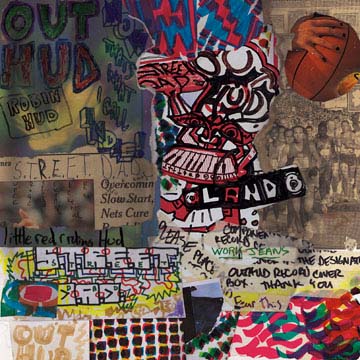 When I first saw Out Hud, they were playing to a crowd of Chicago's finest at the Fireside Bowl in the midst of an old-fashioned Midwestern heat wave. Two feelings prevailed that night, as the crowd anxiously awaited the headlining Locust to come on: the first was the "my god, I could not be more sweaty in this sauna of a club appropriately named the fireside" feeling. The second was the "I don't know who this band Out Hud is or why they are playing this show, but I guess it's cool" feeling. This second sentiment was actually voiced by Out Hud bassist (and !!! vocalist) Nic Offer himself in the banter between two songs. All the perspiring punks could have cared less why Out Hud were there; what mattered was that they were in fact there, and for a 40-minute set on a night when movement was excruciating, everyone forgot about the oppressive heat and started to dance and move and shake to this strange band whose music demanded that our bodies dance and move and shake, regardless of whether we wanted to or not.
When I first saw Out Hud, they were playing to a crowd of Chicago's finest at the Fireside Bowl in the midst of an old-fashioned Midwestern heat wave. Two feelings prevailed that night, as the crowd anxiously awaited the headlining Locust to come on: the first was the "my god, I could not be more sweaty in this sauna of a club appropriately named the fireside" feeling. The second was the "I don't know who this band Out Hud is or why they are playing this show, but I guess it's cool" feeling. This second sentiment was actually voiced by Out Hud bassist (and !!! vocalist) Nic Offer himself in the banter between two songs. All the perspiring punks could have cared less why Out Hud were there; what mattered was that they were in fact there, and for a 40-minute set on a night when movement was excruciating, everyone forgot about the oppressive heat and started to dance and move and shake to this strange band whose music demanded that our bodies dance and move and shake, regardless of whether we wanted to or not. The Legendary Pink Dots might be the best-kept secret of the independent music scene. The band has been playing together for more than 20 years without a single brush with the mainstream, occupying a nebulous space between gothic rock, the avant-garde, progressive rock, the "esoteric" and psychedelic rock. Too goth for the indie fans and too rock for the apocalyptic folk, the Pink Dots have fallen into an odd little niche where few are familiar with them and even magazines like The Wire seem unaware of their existence. It is said that the best environment for artists to produce great work is one in which no one gives a damn, and this could certainly be true for the Pink Dots. Over the course of their career, they have produced a huge catalog of worthwhile music, much of it totally out of step with its time, and always shot through with boundless experimentation and amazingly original soundworlds.
The Legendary Pink Dots might be the best-kept secret of the independent music scene. The band has been playing together for more than 20 years without a single brush with the mainstream, occupying a nebulous space between gothic rock, the avant-garde, progressive rock, the "esoteric" and psychedelic rock. Too goth for the indie fans and too rock for the apocalyptic folk, the Pink Dots have fallen into an odd little niche where few are familiar with them and even magazines like The Wire seem unaware of their existence. It is said that the best environment for artists to produce great work is one in which no one gives a damn, and this could certainly be true for the Pink Dots. Over the course of their career, they have produced a huge catalog of worthwhile music, much of it totally out of step with its time, and always shot through with boundless experimentation and amazingly original soundworlds.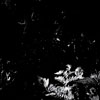 As part of Aaron Turner's (Isis, Greymachine, and Hydra Head Records) new Sige label, this split vinyl captures both the look and feel of classic noise LPs, right down to the hand-stamped labels and lo-fi inserts. The aesthetic carries over to the sound as well, with both artists contributing tracks that share a creepy, heavy sound that joins the best of metal and harsh noise.
As part of Aaron Turner's (Isis, Greymachine, and Hydra Head Records) new Sige label, this split vinyl captures both the look and feel of classic noise LPs, right down to the hand-stamped labels and lo-fi inserts. The aesthetic carries over to the sound as well, with both artists contributing tracks that share a creepy, heavy sound that joins the best of metal and harsh noise.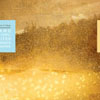 Functioning quite well as a current statement of what the 12k label is focusing on artistically, this disc features five artists associated with the label performing live from a recent Japanese tour, and the results showcase the variety and nuance of this niche of electronic music.
Functioning quite well as a current statement of what the 12k label is focusing on artistically, this disc features five artists associated with the label performing live from a recent Japanese tour, and the results showcase the variety and nuance of this niche of electronic music. I never quite understood the popularity of Pocahaunted and I was pretty underwhelmed by the LA Vampires/Zola Jesus collaboration last year, so I figured it was pretty safe to conclude that Amanda Brown's artistry just wasn't for me.  However, a helpful acquaintance recently sent me a link to this very amusing and heavily stylized
I never quite understood the popularity of Pocahaunted and I was pretty underwhelmed by the LA Vampires/Zola Jesus collaboration last year, so I figured it was pretty safe to conclude that Amanda Brown's artistry just wasn't for me.  However, a helpful acquaintance recently sent me a link to this very amusing and heavily stylized 
